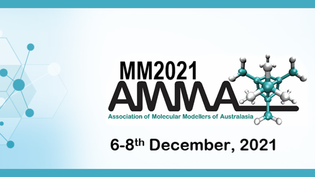Events
Using Flare™ FEP to prioritize the best molecules in drug discovery
 Date and duration
Date and duration
December 7th 2021 • 6:30pm AEST / 8:30am GMT (registration will close 30 minutes before)
Duration: 1 hour
Format: Webinar
Abstract
Free Energy Perturbation (FEP) methods enjoy a strong reputation for delivering reliable and robust binding affinity predictions for small molecule drugs. The accuracy of prediction is typically very high – to within 1 kcal/mol of the experimental value. This has exciting ramifications for drug discovery projects, where reliable affinity predictions are required before committing to the synthesis and testing of new potential leads. One barrier to using FEP can be time constraints and computational resources which scale with the number of molecules in the dataset.
These issues can be mitigated by taking advantage of a workflow starting with using Cresset’s Spark™ (our customers tell us it’s “the best bioisostere solution on the market”) and implementing a fast and high-throughput method of R-group exploration in order to cast the net wide. Followed then by refining and filtering for fewer molecules with the most potential using Cresset’s Flare™ FEP. We show this particular workflow is efficient and allows one to make the right decisions to discover the best molecules. Further, live demonstration of Flare FEP will showcase the capability and usability of the software.
About the presenter
 Dr Jennifer Brookes has over 15 years of scientific research experience and background in theoretical and computational chemistry and biophysics. Her scientific contributions have ranged from exploring the possibility of quantum effects in olfaction, quantifying efficient energy transfer processes in photosynthesis to exploiting protein-protein interactions in antibody (nanobody)- antigen pairs. Jennifer’s research has taken her from King’s College London to University College London, MIT, Harvard and most recently back to University College London at the London Centre for Nanotechnology as lead computational and theoretical biophysicist in the £11M EPSRC IRC for Early Warning Sensing Systems for Infectious Disease. As an FEP Application Scientist at Cresset Jennifer’s responsibilities include supporting customers to use Free Energy Perturbation calculations for reliable and accurate predictions of ligand binding free energies that will inform and guide their drug discovery projects.
Dr Jennifer Brookes has over 15 years of scientific research experience and background in theoretical and computational chemistry and biophysics. Her scientific contributions have ranged from exploring the possibility of quantum effects in olfaction, quantifying efficient energy transfer processes in photosynthesis to exploiting protein-protein interactions in antibody (nanobody)- antigen pairs. Jennifer’s research has taken her from King’s College London to University College London, MIT, Harvard and most recently back to University College London at the London Centre for Nanotechnology as lead computational and theoretical biophysicist in the £11M EPSRC IRC for Early Warning Sensing Systems for Infectious Disease. As an FEP Application Scientist at Cresset Jennifer’s responsibilities include supporting customers to use Free Energy Perturbation calculations for reliable and accurate predictions of ligand binding free energies that will inform and guide their drug discovery projects.
Request recording
Please enter your details via the form below, and we'll be in touch to provide you with access to the webinar recording.